You do not need to visit a winery to know what vineyards look like—if you are of drinking age, you have probably encountered a depiction somewhere, perhaps even on the label of your preferred bottle of wine.
Whether in Argentina, Australia or South Africa, the pervasive, popular image of a winery is more or less the same; the style of the house or curve of the hills may vary, but the defining characteristic is the uniform rows of grape vines. Despite the fact that these vines are living plants cultivated for some of the most convivial moments of our days, there is no sign of the mess and movement of life—which is a fairly faithful representation of the reality at most wineries.
“Because so much of the wine industry is hospitality-oriented, I think that has guided a lot of farming decisions over time, and there’s this idea that vineyards need to look like golf courses to be well-farmed,” says Stephen Hagen, owner of Antiquum Farm in Junction City, Oregon.
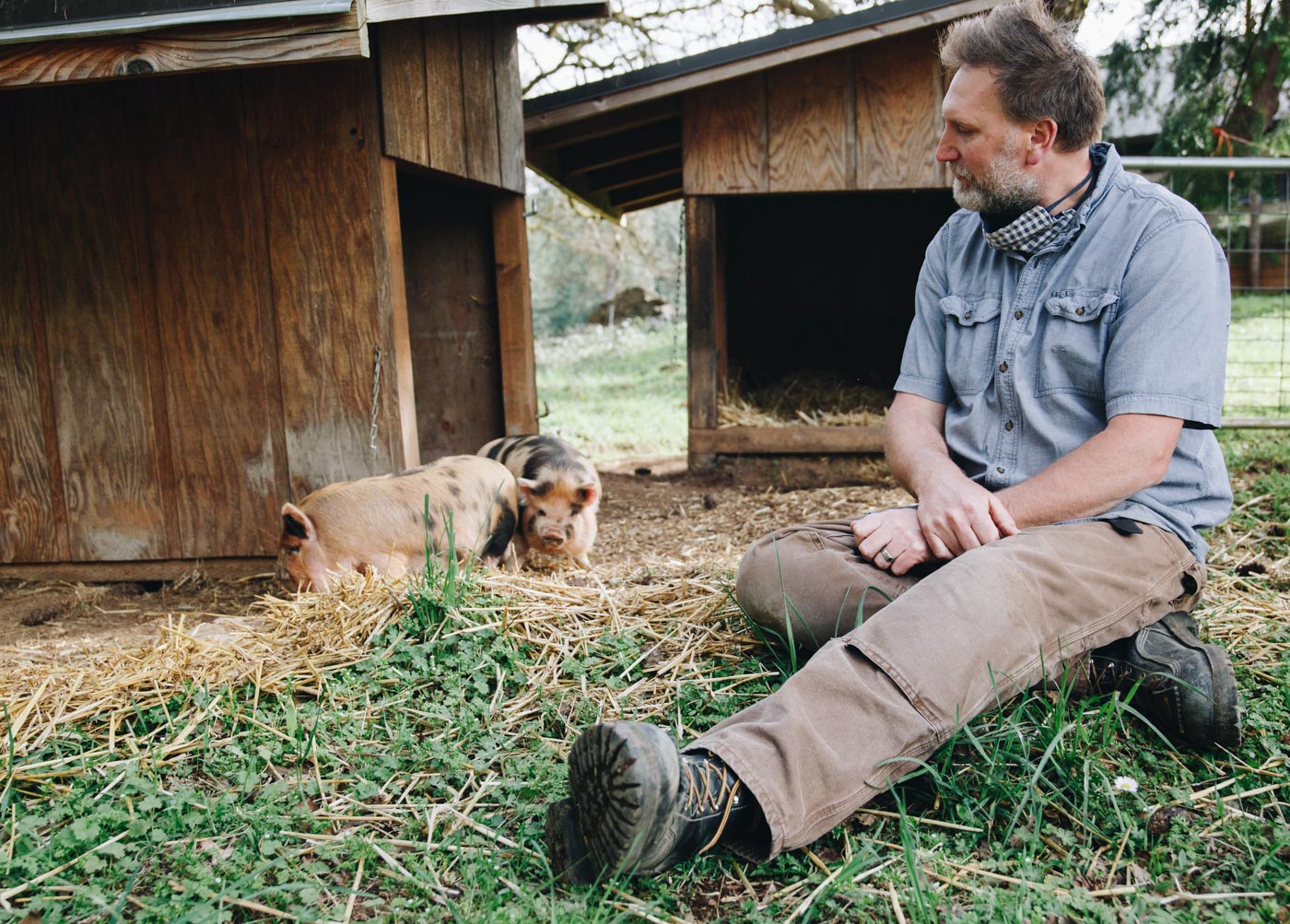
Antiquum Farm, however, is a different kind of winery. In fact, although their primary product for sale is wine, Hagen prefers to call his establishment a farm rather than a winery, or “wine farm” if clarification is needed. It is a small distinction, but an important one, emphasizing that wine, although generally served in sparkling clean glassware far removed from the fields, is ultimately an agricultural product—and just one of several that Antiquum Farm produces.
This intentionality with regards to terminology is indicative of Hagen’s approach to farming, which is not founded on a formal education in viticulture, but is instead guided by his own innate sense of curiosity and integrity.
“To be quite honest, I think the vast majority of the wine world talks a lot about terroir, but doesn’t really ask themselves what that means,” says Hagen.
“Wines have this unique ability to articulate place and time,” he continues. “The only way you really get that is to have a place that is emphatically present and alive.”
The work of all farmers and winemakers is to some extent influenced by the particular presence and aliveness of a piece of land, but most seek to control or limit unpredictable circumstances and potential complications.
Fertilizers are applied to manipulate soil composition. Chemicals are administered to eliminate insects. Machines till the earth to uproot weeds. In vineyards, grape vines are usually the only life permitted to thrive in a heavily altered environment.
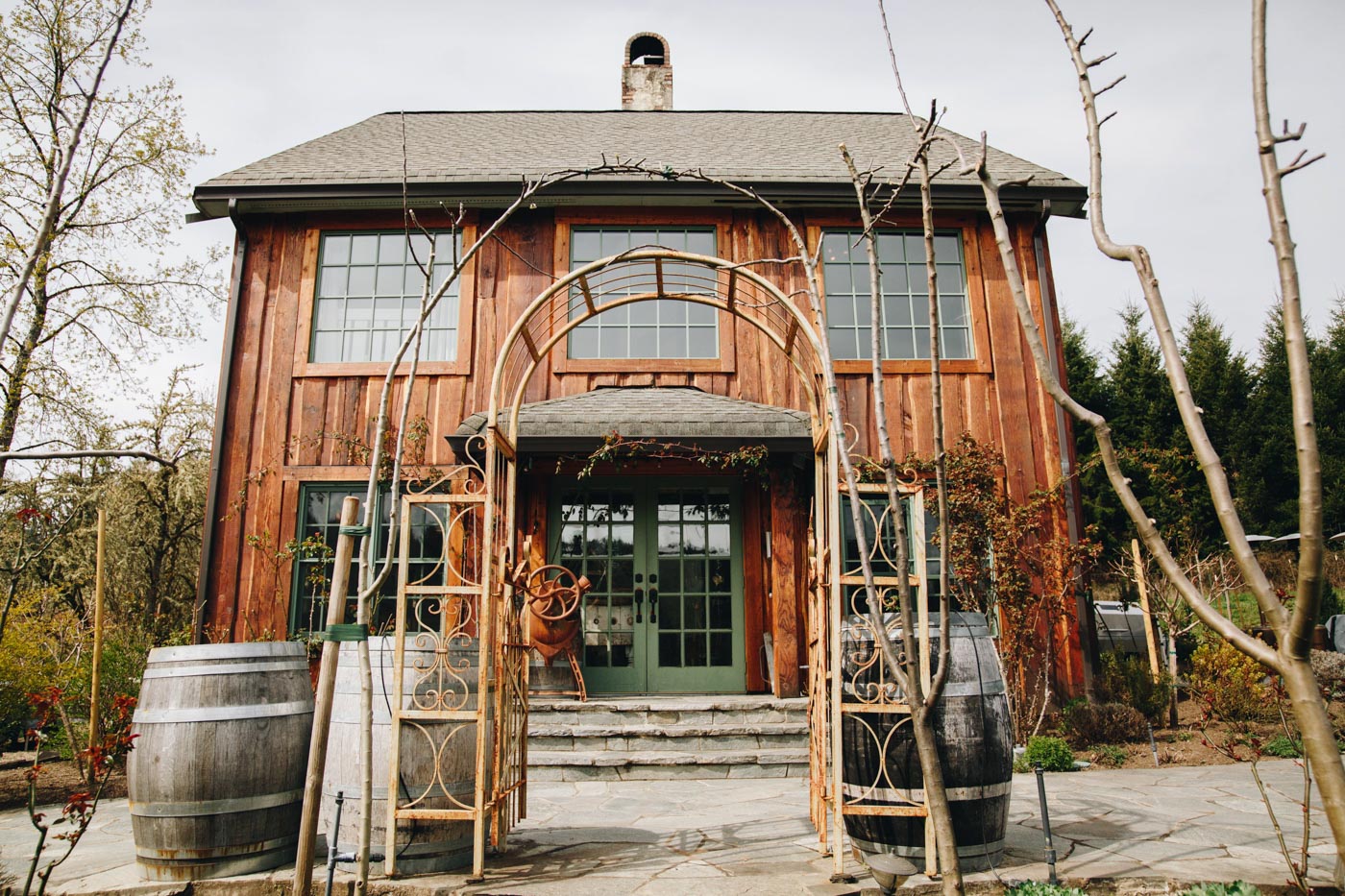
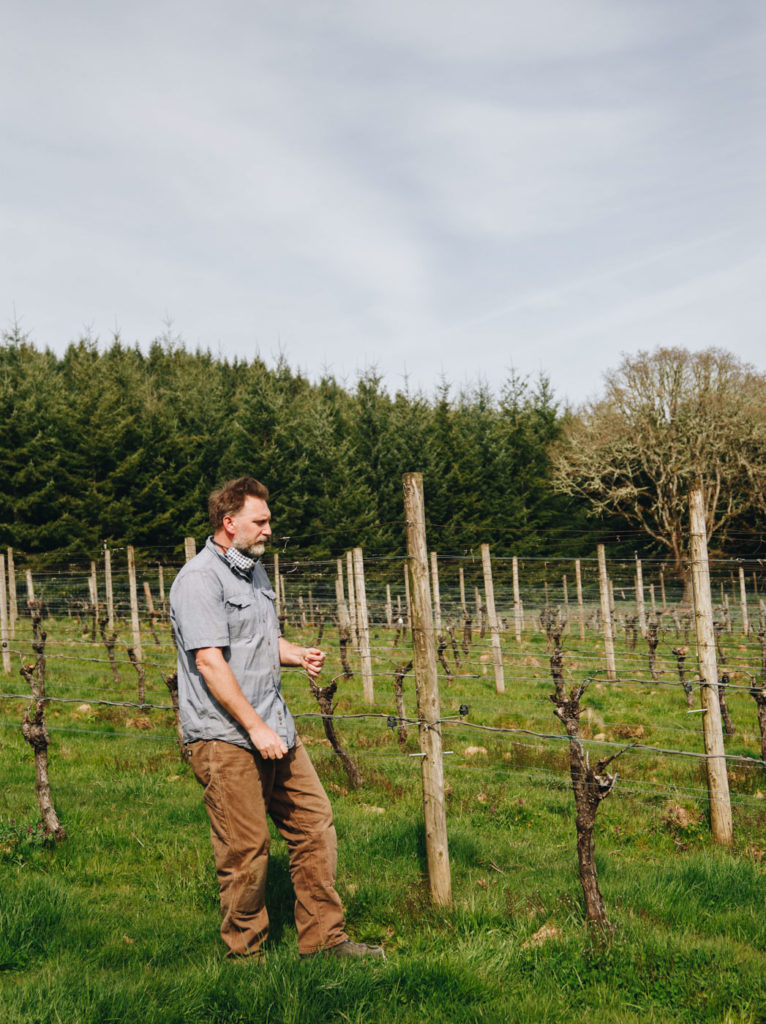
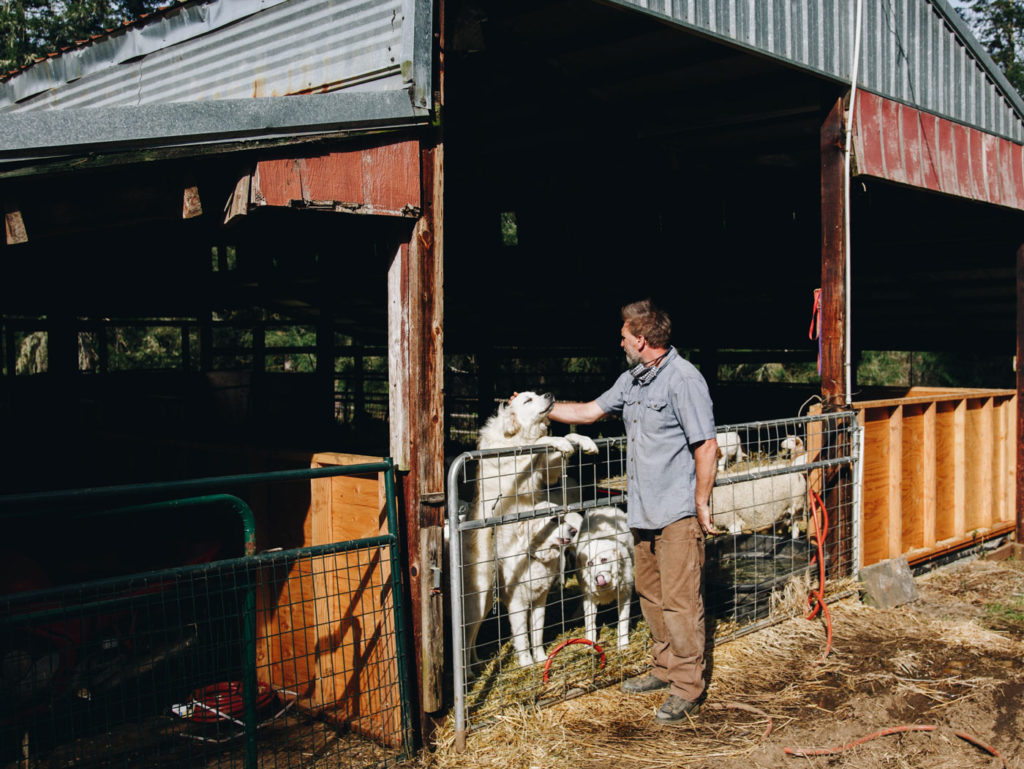
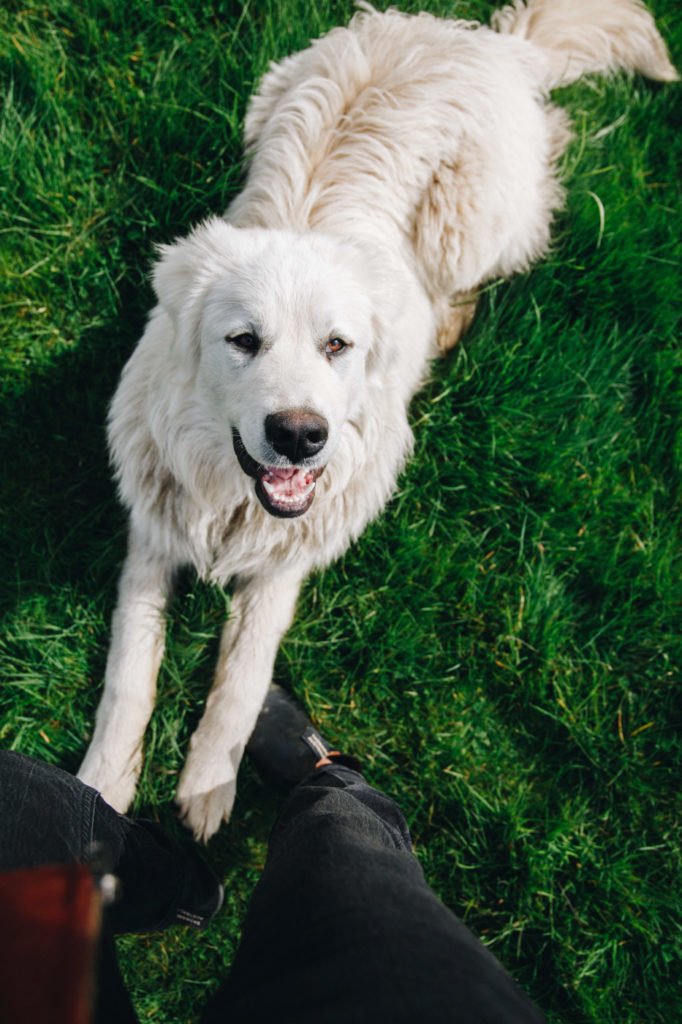
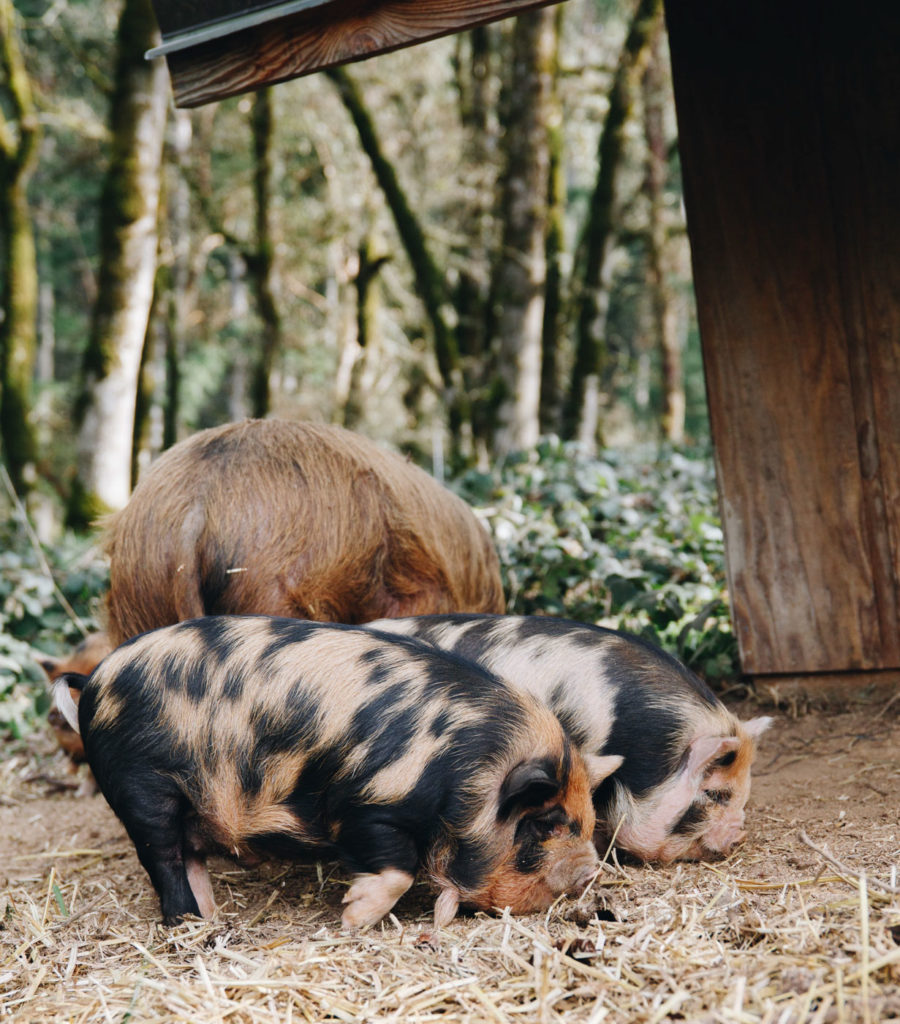
Several years into farming his vineyards at Antiquum Farm according to organic standards, Hagen began to question how this agricultural model relates to the general understanding of terroir. While spreading organic fertilizers over his land he had what he refers to as a “lightbulb moment.”
“Wait a second,” Hagen recalls thinking. “Where does this stuff come from?”
Some preliminary research led him to find that “the major components came from Florida and Georgia and the Midwest.” It occurred to him that his neighbors and other farmers throughout the United States rely on the same fertilizer suppliers.
“It didn’t make sense to me that we were talking about this sense of place, but then trucking fertilizers from across the country,” he explains. It was at this point that Hagen began a passionate pursuit of authentic terroir.
“If we’re going to talk about this, let’s make it real,” he says, recounting his feelings at the time. “I’m not interested in wading around in mud and manure for something that is marketing speak. I want it to be real—because it’s my life.”
In 2009, 13 years after Hagen and his wife purchased the land that became Antiquum Farm, Hagen successfully ceased to rely on inputs, including fertilizer, from outside the farm and, in the process, developed a form of regenerative agriculture that pushes beyond the standards of organic farming.
“Don’t get me wrong,” says Hagen. “I am a hundred percent on board with any kind of positive steps that a farmer takes. Certified organic and biodynamics—everyone should be going down that path. I just don’t think it should be the end of the conversation—the end of the creative thought process.”
Hagen, in seeking to push the conversation forward, created a new term for the agricultural model he has put into practice at Antiquum Farm: grazing-based viticulture.
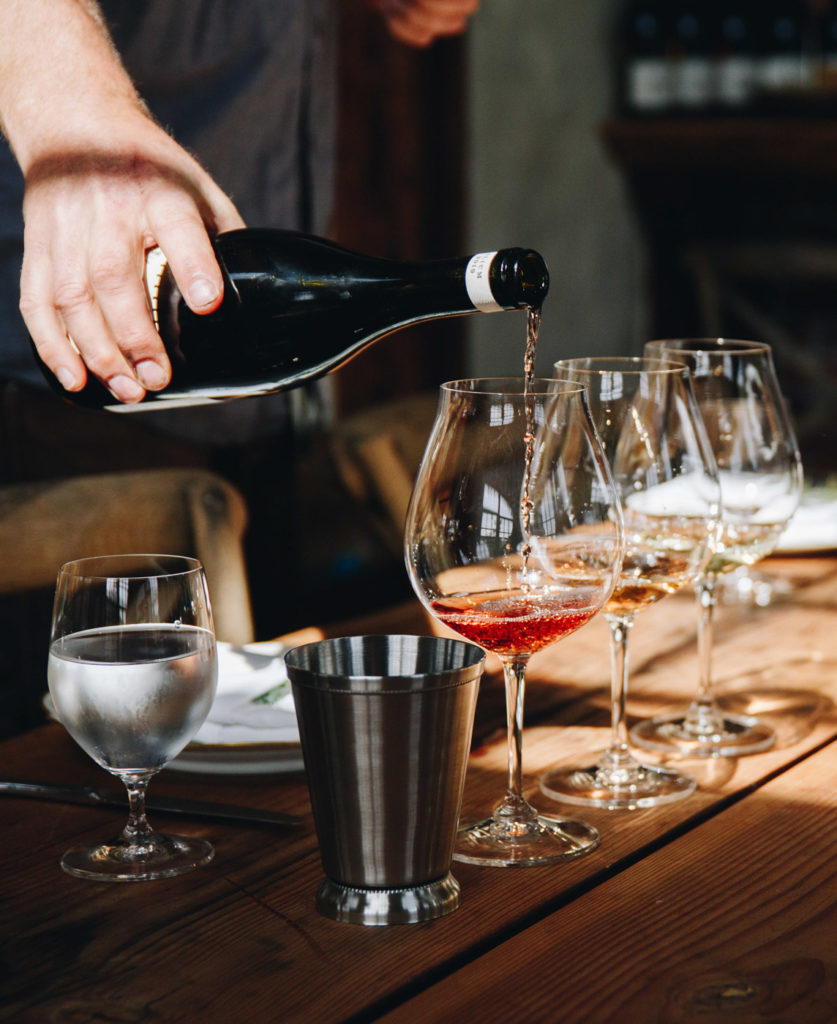
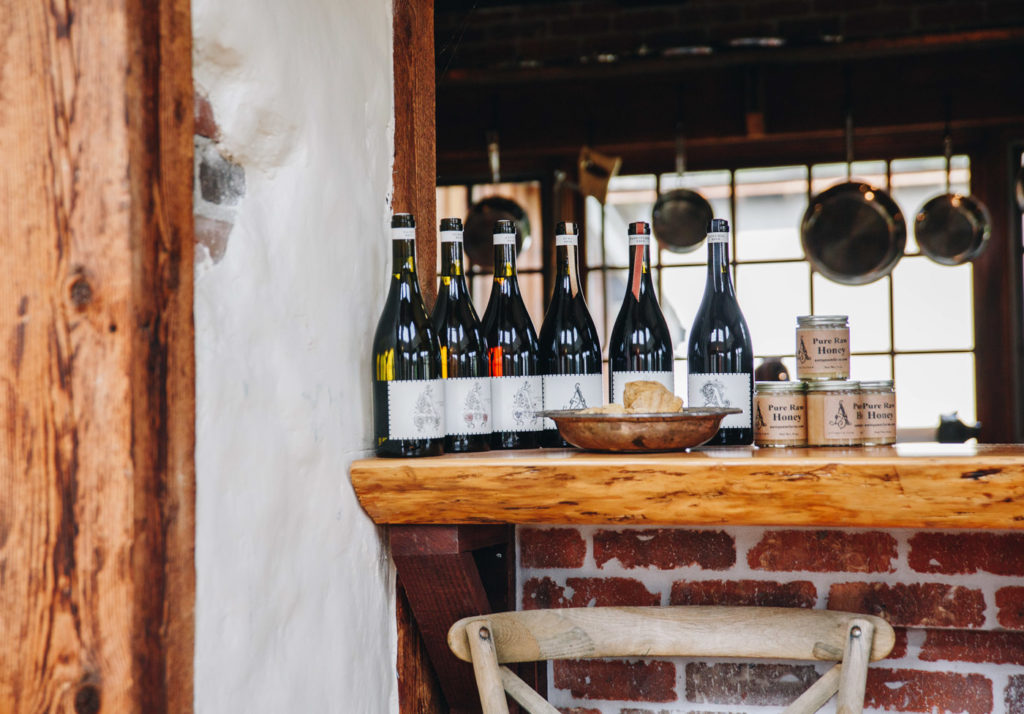
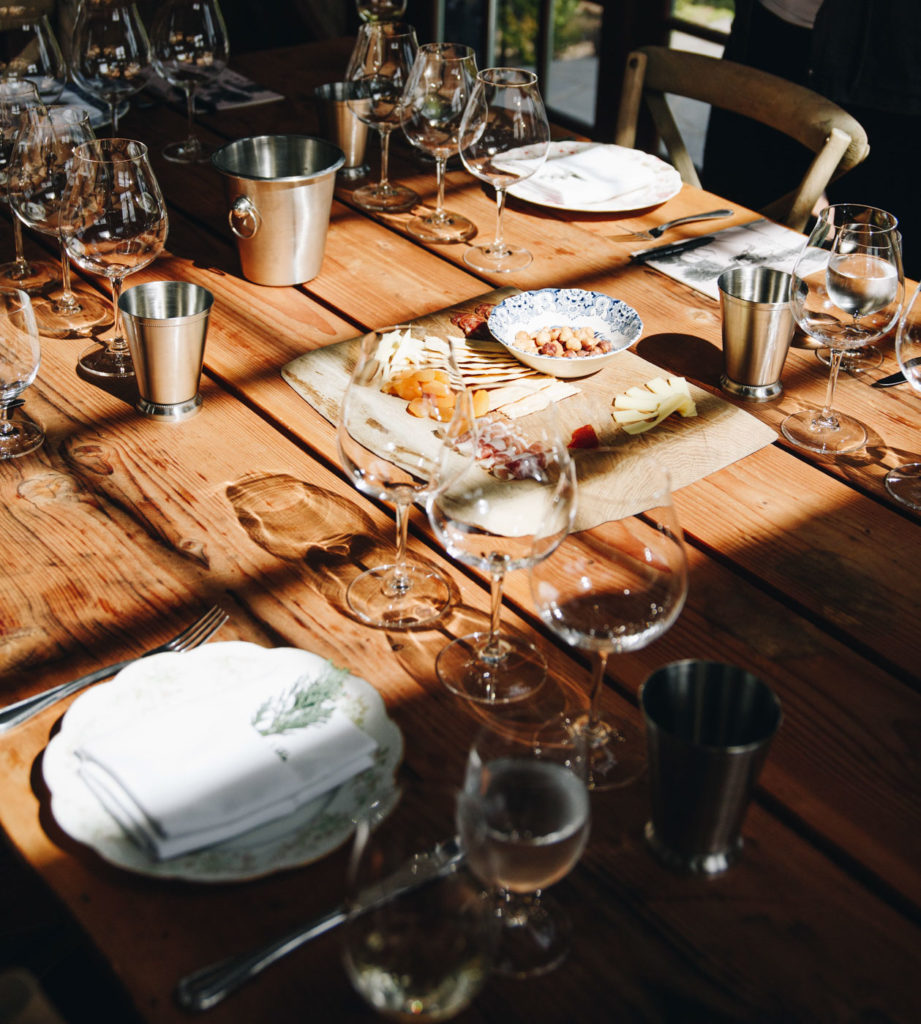
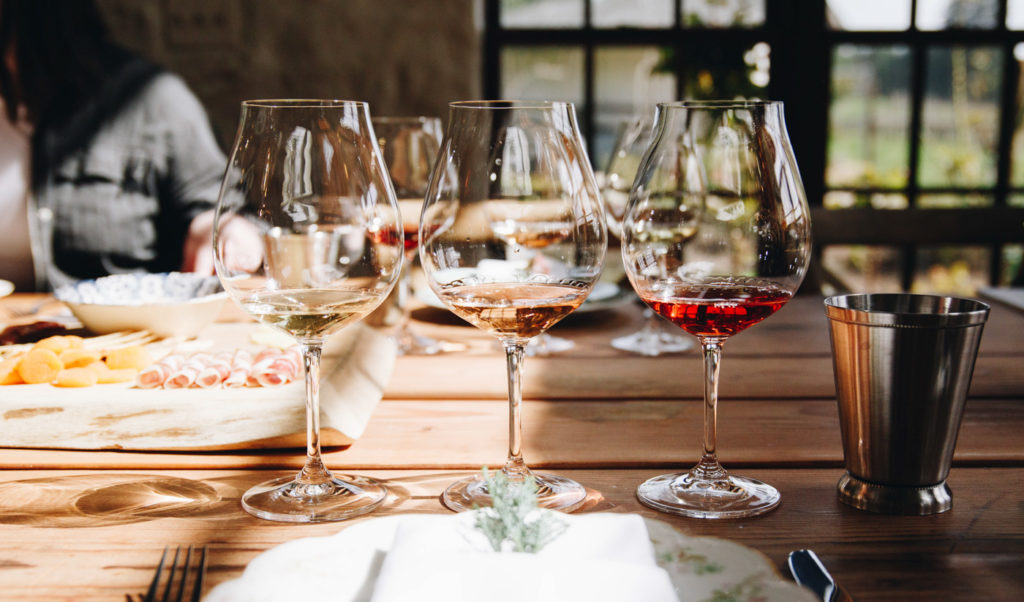
“What we’ve done here with the concept of terroir is we’ve gone completely down the rabbit hole,” he says. “The idea has evolved into one that is more microbial in its focus than on soil nutrition.”
While farmers can spread fertilizer or plant cover crops on their land to benefit soil nutrition, building up microbial populations in the soil is more complicated. Hagen was familiar with the practice of rotational intensive grazing—wherein livestock are “rotated” or led from one designated pasture to another for set periods of time in order to naturally fertilize soil—and understood this also stimulates microbes in soil. He wondered if he could implement this practice within his vineyards.
Although the mechanics of grazing-based viticulture are complex, the philosophy is simple: more life above ground equals more life below ground.
At first glance, the presence of farm animals grazing in the midst of Hagen’s vineyards might look like an accident—like someone is about to get in trouble for not closing a nearby gate tightly enough. However, these two-legged and four-legged creatures are exactly where they should be, guided there with meticulous care and each bestowed with an important responsibility.
The grazing team at Antiquum Farm consists of sheep, pigs, geese and chickens, all of which are attentively watched over by large, fluffy Maremma guardian dogs. Hagen has carefully selected the types and breeds of each of these animals over the years to satisfy a variety of roles within the vineyards, including weed and pest management, but also for their ability to provide other products for sale, such as fresh meat and eggs.
“You have to scale the animals to fit the vineyard,” says Hagen. For the Katahdin Dorper crossbred sheep—which are the primary grazers at Antiquum Farm and the first animals on any piece of land during a grazing rotation period—this means considering not just their height on all fours, but the highest extent of their reach as they prop themselves up on their hind legs to hungrily chomp on leaves and fruit.
Preventing the animals from eating or otherwise destroying the grape vines is one of the greatest challenges of grazing-based viticulture.
“We have offset electrical wires in our trellising system,” Hagen explains. “So when the sheep are in these 10 or 12 rows, we turn on the power there.” This electrical system, which is based on standard humane livestock management practices, is enough of a deterrent to keep the sheep from eating the leaves or grapes most of the time, except for a few weeks of the year directly before the harvest.
“We pull the sheep out of the vineyards about mid-August,” Hagen says. “At that point, two things are happening. As the ground is drying out, it’s harder to ground that electrical system to be effective and then there’s so much sugar in the fruit, it becomes more and more of a temptation.”
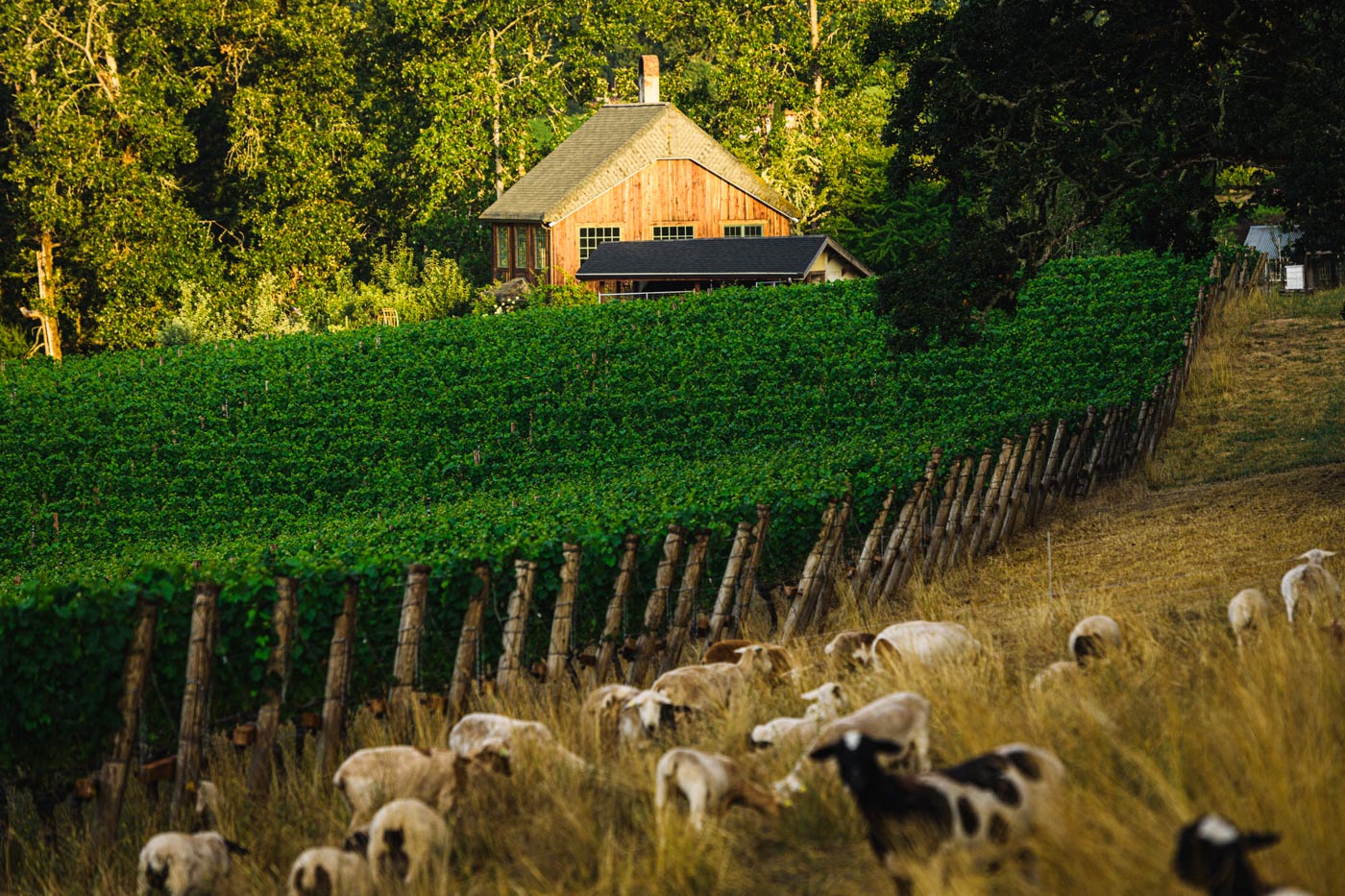
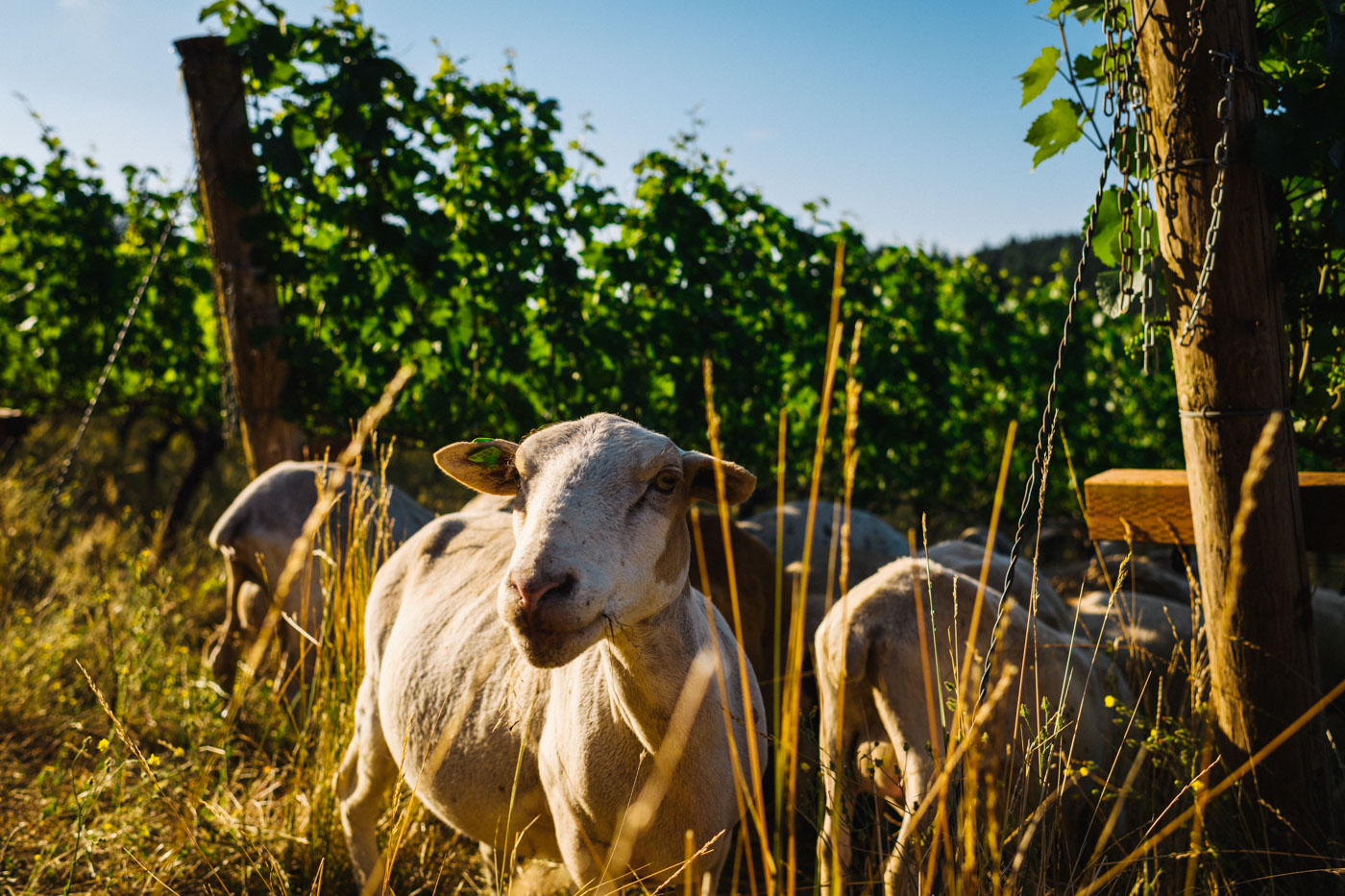
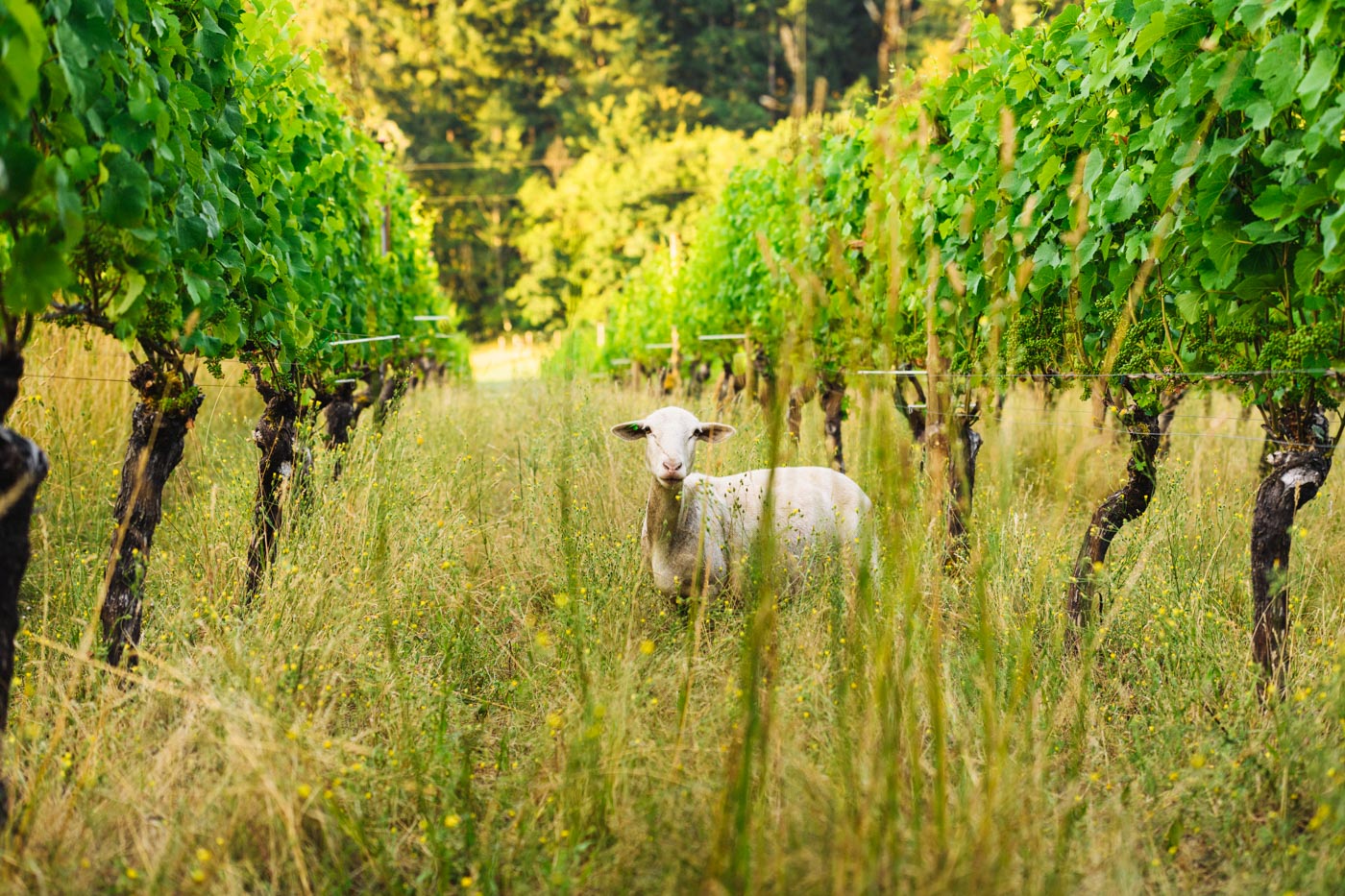
Aside from the height of the animals, their weight is taken into account. “We can’t have any animal out there that’s more than 150 pounds,” Hagen continues. “If they scratch themselves on a vine, they can break it off.”
The heaviest animals in Antiquum Farm’s vineyards are the Kunekune pigs, which join the sheep in the primary grazing rotations.
“We’re stretching into our ninth month of the year without feeding them,” Hagen says of the pigs when we talk in September, directly after the grape harvest. “They’re thriving off forage. We’re raising some really nice, fat rings on charcuterie that are just based on eating blackberries, acorns, windfall apples, mushrooms and a lot of grass.”
Hagen explains it has been important to select “animals that, from a sustainability standpoint, get by or thrive on the resources we have so that we are not buying excessive amounts of feed—hay and alfalfa and things like that.”
There are short periods of the year, such as lambing season, when certain animals need to remain indoors and, therefore, cannot rely on forage. “Outside of that, they’re surviving entirely off of the natural resources of this property,” says Hagen. “It is a matter of collecting solar energy, turning it into biomass, and creating food from that without trucks, without any kind of outside input.”
In the constant cycle of grazing rotations, the sheep and pigs are followed by poultry in a lively kind of parade through the vineyards.
“They’re moving every three to 10 days depending on conditions of growth and time of year,” says Hagen. He points out that plenty of wineries put animals out to pasture in vineyards for part of the year, but that these short periods in one location are not very effective. “To get that sustained microbial hum, you need to be out there year round and moving, moving, moving constantly.”
It takes significant effort to move the animals from place to place in this way while also maintaining the farm equipment that helps to manage their grazing.
“The system we’ve created is all mobile and adjustable because the vines are not static,” Hagen says of the electrical wiring of the trellising system. “Every time [the animals] move, we have to go through and fine tune that system. Every morning, you’ve got to walk it and make sure nothing’s been broken or shorted out.”
“This is not how you farm if you want to make money. The labor cost is insane,” Hagen adds. “There is much more priority put on happiness and humor and emotional and mental health than there is on money.”
With that being said, Antiquum Farm is a business that has to cover operating costs, which becomes an impossibility in unpredictable scenarios like the fire season of 2020 that had severe consequences for many farmers in Oregon.
“We did not make any 2020 wines because of smoke impact,” says Hagen, recounting the heartbreaking loss of an entire year’s work, including harvesting all of the farm’s grapes before discovering the extent of the damage from fires that burned dozens of miles away from Antiquum Farm. This year, some of their animals have been put to work on a new “fire risk mitigation” team to graze vegetation in surrounding forests.
Devastation of this kind is not unfamiliar to farmers, who by nature or by necessity must maintain a sense of hope, as Hagen does, but as climate change makes the work of farming ever more precarious, it is time for consumers to become more engaged.
“Farmers are overworked, underpaid people, but they want people to understand what they’re doing and why,” Hagen says. While most farmers have few opportunities to explain their work directly to consumers, wine makers are more likely to interact with the people who enjoy their products. This is part of what leads Hagen to believe that “wine is uniquely positioned to deliver a message and hopefully tweak the mindset about consumption.”
“I hate the word brand, but—are we a wine brand or are we an ethics brand?” Hagen continues. “We hope people are buying the wines because they love the wines. But I think the thing that really makes people support us and appreciate us is the whole picture—the thinking and heart and soul behind the operation.”
For Hagen, it is not about increasing profitability or producing perfect wines by industry standards.
Instead, he claims, “The thing that is driving my process all the time is: where are the opportunities to increase the diversity of life, and the articulation and expression of our home?”
Hagen’s unconventional motivations are reflected in Antiquum Farm’s unconventional wines. In the years since beginning to practice grazing-based viticulture, their pinot noir and pinot gris grapes have begun to develop in unusual ways, producing clusters of berries in unexpected hues or even, in some cases, berries that are split down the middle into two different colors. Likewise, the wines made with these grapes do not fit neatly into traditional categories.
“There is a through-line of personality that is very clear, but there are big changes,” Hagen says in describing the differences from one vintage to the next. “And we go—isn’t that cool? It creates a deeper conversation.”
Through the daily work of grazing-based viticulture, Antiquum Farm is changing the course of the conversation around terroir not only for wine, but for all agricultural products, and directing us toward more real and regenerative, rather than pristine and extractive, forms of farming.
Embracing the presence of life above ground and below in the vineyards, Hagen reminds us that we all have a role to play—from the smallest microbes to bipeds with big carbon footprints and an appreciation of wine—in a more harmonious agricultural system.





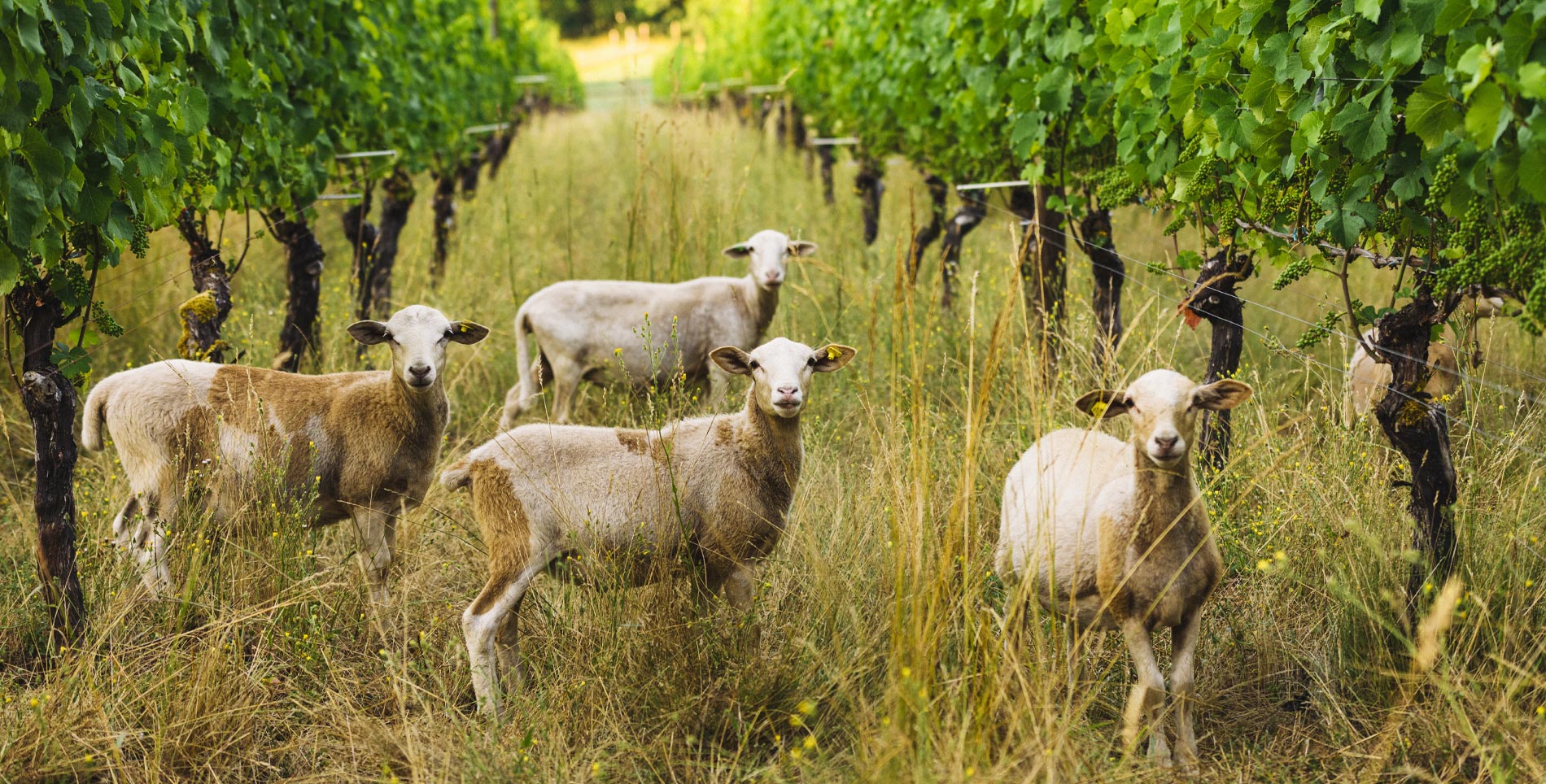

Our comments section is for members only.
Join today to gain exclusive access.